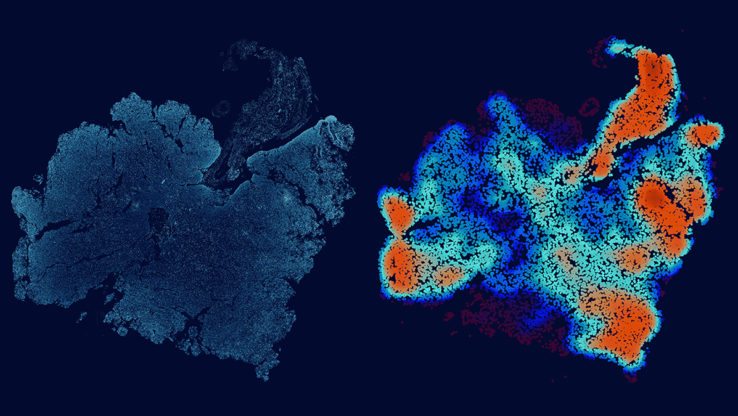April 25, 2017
3 Bullets:
- Using integrated protein and gene expression data, ISB researchers developed a 33-gene signature for glioblastoma, an aggressive form of brain cancer.
- Glioblastoma gene signatures are associated with TGF-b signaling and cancer invasion.
- Researchers think that some of the glioblastoma gene signatures have the potential to be used as blood biomarkers for this aggressive cancer.
By Jocelynn Pearl and Cory Funk
Cancer tumors express unique gene and protein signatures that are informative for three main reasons: 1. Understanding their biology 2. Designing targeted therapeutics and 3. Identifying disease biomarkers. Researchers at the Institute for Systems Biology utilized data from patient tumors to understand the unique signatures of an aggressive form of brain cancer called glioblastoma.
The study, published on March 28, 2017, in the journal Cell Systems, demonstrated that a 33-gene signature (called GBMsig) was unique to glioblastoma tumors. The researchers went on to show that knocking down the expression of many of these genes weakened glioblastoma cells from invading other cells (which causes the spread of cancer). The researchers went on to examine the protein levels for four of the GBMsig genes in patient blood samples and found that the levels of these four proteins could determine whether or not a person had glioblastoma (as compared to healthy controls). Finally, the researchers built a classifier for these four proteins and it was able to tell apart blood from a patient before and after a tumor was removed. These results provide powerful evidence that this protein signature might have the potential to be used as a blood biomarker for glioblastoma.
Title: A Cell-Surface Membrane Protein Signature for Glioblastoma
Journal: Cell Systems
Authors: Dhimankrishna Ghosh, Cory C. Funk, Juan Caballero, Nameeta Shah, Katherine Rouleau, John C. Earls, Liliana Soroceanu, Greg Foltz, Charles S. Cobbs, Nathan D. Price, Leroy Hood
Link: cell.com/cell-systems/references/S2405-4712(17)30089-3



 isbscience.org/research/cell-surface-membrane-protein-signature-glioblastoma/
isbscience.org/research/cell-surface-membrane-protein-signature-glioblastoma/








